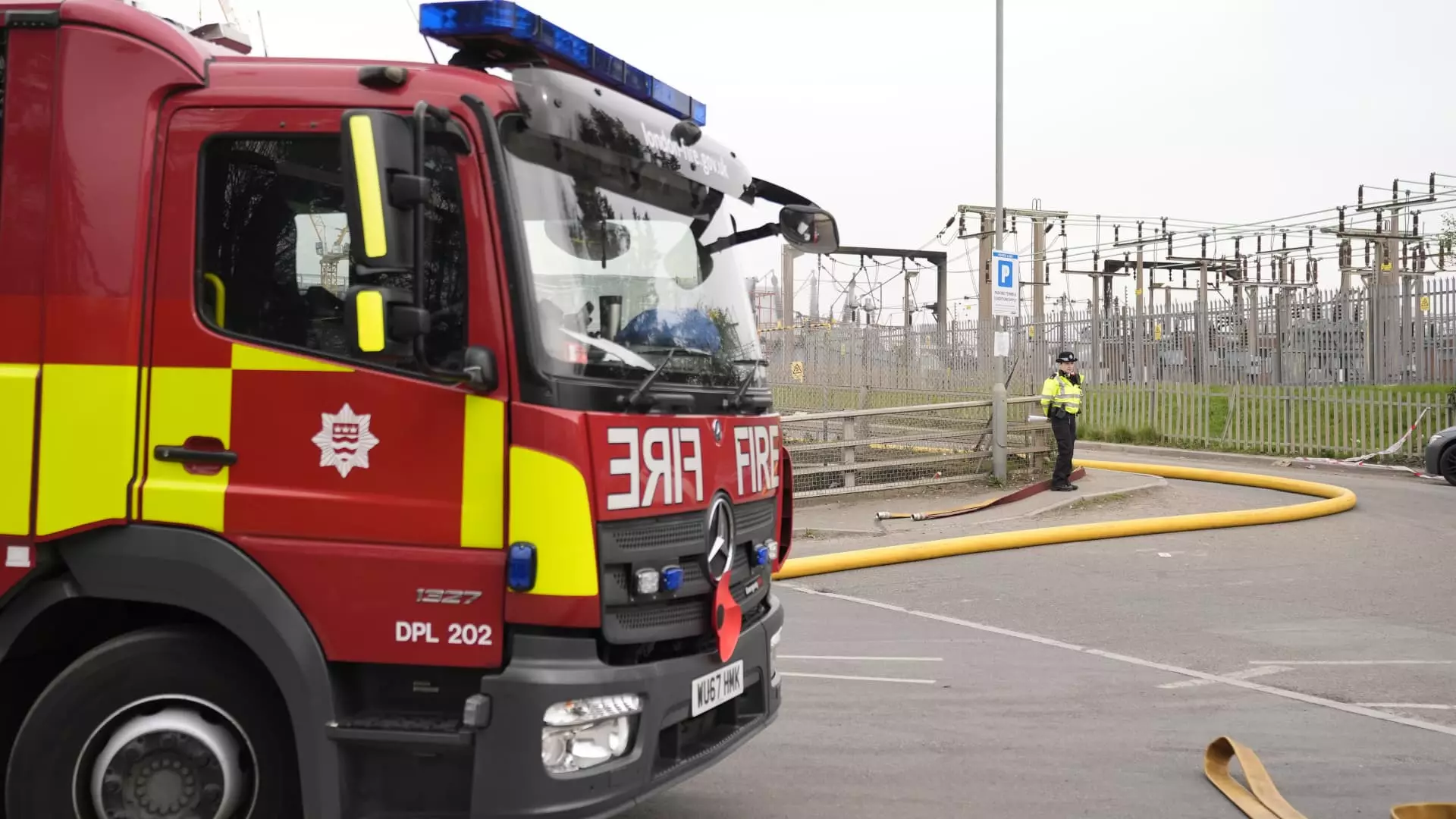The alarming incident at London’s Heathrow Airport, caused by a fire at an electricity substation, elevates the stakes for an aviation industry teetering on the edge of crisis management. When a single spark can bring an entire operation to a grinding halt, it raises unsettling questions about preparedness in one of the world’s busiest air traffic hubs. The reality is that as air travel flourishes and demand surges, the corresponding growth of infrastructure has stagnated, leaving airports like Heathrow vulnerable to unforeseen disasters. This incident starkly reveals that the aviation sector must confront its frailty head-on; reliance on a single energy source is a glaring oversight that can no longer be excused as a mere planning failure.
A Wake-Up Call for Resilience
Anita Mendiratta, a prominent consultant in the travel industry, emphasizes that the scope of this incident extends far beyond the inconvenience of flight cancellations. In her words, it presents “a dramatic learning curve” for an industry in desperate need of resilience. This isn’t just about Heathrow; it’s about a global network of airports grappling with the same vulnerabilities. As traffic approaches pre-pandemic metrics, the infrastructure supporting this growth is faltering, exposing the cracks in a system that needs strong foundations. Without robust energy supply networks and contingency plans, the entire aviation sector risks being paralyzed by similar crises—now more than ever, the world should consider this a serious warning.
Flight Cancellations: Economic Ripples
The ramifications of the Heathrow fire will likely ripple through various sectors—impacting not only airline operations but also related economic activities. With over 4,000 tons of cargo moving through Heathrow daily, the incident raises serious questions about the broader implications for trade and logistics. Passengers stranded due to canceled flights may find solace in airline compensation policies, but industry insiders, such as Mendiratta, warn that such reimbursements may be elusive, depending on the legal fine print. Airlines must navigate not only short-term costs associated with customer disruption—like food, accommodations, and alternative transport—but also long-term opportunities for customer retention and loyalty. This crisis poses a pivotal moment for airlines to prove their commitment to customer care amidst chaos, which could either bolster or destroy their reputations in the eyes of investors.
The Call for Infrastructure Investment
We find ourselves pondering: how much longer can the aviation industry coast on outdated infrastructure? With rising passenger numbers projected to soar annually by 3.8% up to 2043, the industry needs to wrestle with the uncomfortable reality that a third runway at Heathrow has been debated for far too long. The U.K. government must prioritize infrastructural initiatives and green technologies that not only meet immediate demands but also ensure sustainable growth. Investment in energy supply resilience must be at the forefront, allowing airports to consider alternative, sustainable solutions. The need for a third runway, heavily backed by influential figures like British Finance Minister Rachel Reeves, underscores the urgency to act before the next crisis strikes.
Transitioning towards Sustainability
The aviation industry stands at a crossroads where it must reconcile its drastic growth with urgent sustainability goals. Mendiratta emphasizes the shift toward sustainable aviation fuel as critical for the future, which will only succeed if accompanied by substantial investments in infrastructure that prioritize green technologies. As a society, we have to demand that our airports and airlines step up—be it through adopting renewable energy sources or implementing practices that mitigate environmental impact. Continuous contentious battles over expansion projects without addressing the elephant in the room—our heavy reliance on traditional energy—will only lead to more failures in crisis management.
Lessons Yet to Be Learned
Ultimately, the Heathrow fire should serve as an alarm for an industry poised on the brink of unprecedented growth yet riddled with oversights. The message is clear: if the aviation sector continues to prioritize expansion without addressing the foundational issues of resilience and infrastructure, it invites more crises both now and in the future. Strengthening the framework of energy supply, diversifying resources, and emphasizing sustainable development are not merely suggestions—they are imperatives for an industry that claims to embrace the future. This incident should inspire collective introspection and proactive measures to revolutionize how airports prepare for crises, ensuring safety and sustainability for years to come while navigating the airways of an increasingly complex global landscape.


Leave a Reply